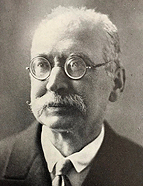

The details of Fortunato de Almeida Pereira de Andrade’s birthplace are contradictory. Moreira das Neves put forward Folhadal, Coimbra, and Justino de Almeida Folhadal in the municipality of Viseu. The most common reference, the one that seems to be correct, indicates Vilar Seco, Nelas, where he was baptised and in whose register the reference to the place of birth, which took place on 15 April, is missing, as is the case with the registers from that period drawn up by the same parish priest. This seems to point to a correspondence between the parish of baptism and the parish of birth. The same document states that he was the son of Francisco Manuel de Almeida, a deputy to the Registrar of the Ordinary Court, and Felícia da Anunciação, a landowner. He may have been the fruit of his father ’ s second marriage, which other sources have not been able to confirm, given the reference in the document to Maria Miquelina, his “ half-sister ” and baptismal godmother.
He completed his secondary school studies at the Viseu Seminary. Abandoning the possibility of embracing the ecclesiastical life , he went to the University of Coimbra, where he enrolled in the School of Law in 1890-1891. A mong others , he studied with the poet Fausto Guedes Teixeira and José Ferreira Marnoco e Sousa, who came to prominence as a jurist, in addition to the executive activity he carried out at the end of the liberal monarchy. In this School, he met António José Teixeira de Abreu, Quirino de Jesus , and Afonso Costa, all at a later stage in their academic career. He completed his bachelor’s degree in Law in 1896, with a classification of “ Good with 11 points” . In addition to this training, he had theological preparation – knowledge characterised , at the time , by a strong legal focus – which had given him access to Latin and French, a language in which he even published. His previous seminary studies and the academic environment in Coimbra combined to define his political and ideological views, leading to affinities and disagreements that began in Coimbra, both with members of his School and with some of those who were studying theology at the time, including Manuel dos Santos Farinha, Abúndio da Silva, Joaquim Mendes dos Remédios , and António Alves Ferreira, who would later become bishop of the diocese of Viseu. It was with a theology student, also from the diocese of Viseu, that he undertook the editorial initiative that formed the Revista Contemporanea de questões religiosas, scientificas, philosophicas, históricas e sociais [ Contemporary Journal of Religious, Scientific, Philosophical, Historical and Social Issues ] (1894-1896) – Fortunato de Almeida was the editor , and the director was José Marques Rito e Cunha, an ecclesiastical student of theology who, among other duties, would become a canon of the See of Viseu. In this periodical, he printed “A Igreja Católica e a Escravatura” [The Catholic Church and Slavery]. He managed to get Luciano Cordeiro to collaborate with this magazine, writing about one of his recurring themes – the discovery of America.
This work is financed by national funds through FCT - Foundation for Science and Technology, I.P, in the scope of the projects UIDB/04311/2020 and UIDP/04311/2020.
